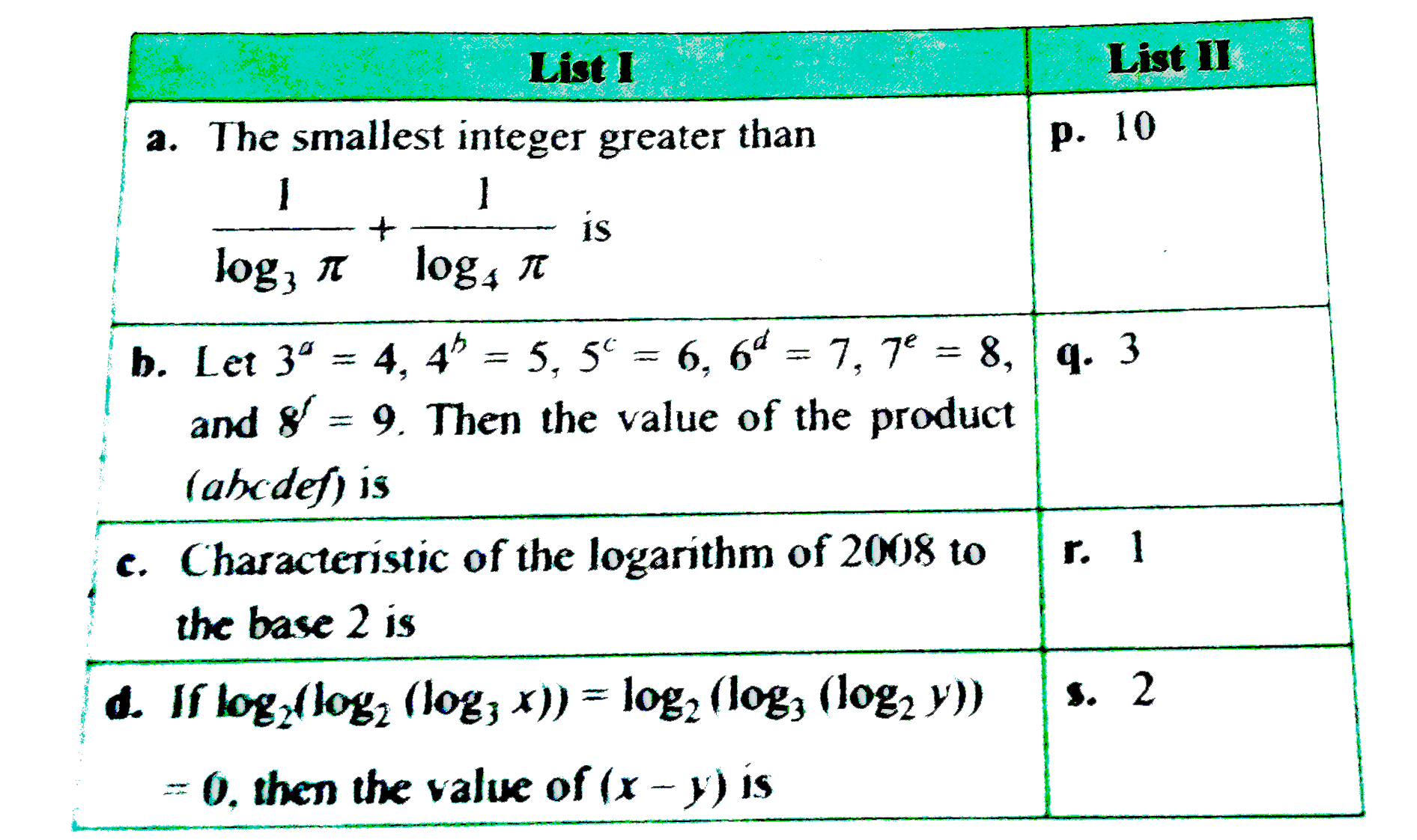If [4(B/A] (where [ ] represents the greatest integer function) equals ..............Solution in Bengali
The correct Answer is:6
Let
Topper's Solved these Questions
- BOOK - CENGAGE PUBLICATIONCHAPTER - LOGARITHM AND ITS PROPERTIESEXERCISE - JEE MAIN1videos
LOGARITHM AND ITS PROPERTIES
- BOOK - CENGAGE PUBLICATIONCHAPTER - LOGARITHM AND ITS PROPERTIESEXERCISE - JEE ADVANCED1videos
LOGARITHM AND ITS PROPERTIES
- BOOK - CENGAGE PUBLICATIONCHAPTER - LOGARITHM AND ITS PROPERTIESEXERCISE - Matrix Match Type3videos
LOGARITHM AND ITS PROPERTIES
- BOOK - CENGAGE PUBLICATIONCHAPTER - LOGARITHM AND ITS APPLICATIONS EXERCISE - Subjective Type9videos
LOGARITHM AND ITS APPLICATIONS
- BOOK - CENGAGE PUBLICATIONCHAPTER - MATHMETICAL REASONINGEXERCISE - Archives10videos
MATHMETICAL REASONING
Similar Questions
The equation esinx−e−sinx−4=0 has
03:25View SolutionLet (x0,y0) be the solution of the following equations: (2x)1n2=(3y)1n3 31nx=21ny The x0 is 16 (b) 13 (c) 12 (d) 6
06:29View SolutionMatch the following List I to List II
 07:39View Solution
07:39View SolutionFind the value of x satisfying the equations log3(log2x)+log1/3(log1/2y)=1 and xy2=9
09:58View SolutionStatements -1 : ~(p↔~q) is equivalent to p↔q
Statement-2: ~(p↔~q) is a tautology.03:05View SolutionIf (log)4A=(log)6B=(log)9(A+B),then [4(BA)] (where [ ] represents the greatest integer function) equals ..............
10:08View Solution∫103[log[x]]dx is equal to (where [.] represents the greatest integer function)
07:35View SolutionIf f(x)=[ln(x)e+[ln(e)x], where [.] denotes greatest interger function, the which of the following are ture ?
07:00View SolutionLet f(x)=log{x}[x]
g(x)=log{x}−{x}
h(x)log{x}{x}
where [],{} denotes the greatest integer function and fractional part function respectively.
Domine of h(x) is :03:29View SolutionThe value of ∫e61[logx3]dx (where [.] denotes the greatest integer function) is (ea−eb) then the value of ab is
03:48View Solution∫e1x4lnx+2x3lnx+xdx=e2+ab−ln(e2+1) where a and b are positive integers then ab=
05:48View SolutionIf (log)4A=(log)6B=(log)9(A+B),then [4(BA)] (where [ ] represents the greatest integer function) equals ..............
05:52View SolutionIf (log)aN(log)cN=(log)aN−(log)bN(log)bN−(log)cN,whereN>0andN≠1,a,b,c>0 and not equal to 1, then prove that b2=ac
03:23View Solution∫103[log[x]]dx is equal to (where [.] represents the greatest integer function)
02:41View SolutionLet f(x)=log{x}[x]
g(x)=log{x}−{x}
h(x)=log[x]{x}
where [],{} denotes the greatest integer function and fractional part function respectively.
Domine of h(x) is :03:21View SolutionThe value of limx→π4(1+[x])1/ln(tanx) (where[.] denote the greatest integer function) is equal to
04:59View Solution

